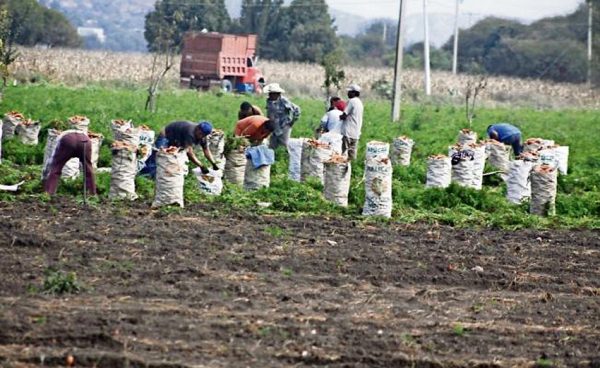Groups seek probe by international court
Compiled by Mexico News Daily
The International Criminal Court was asked yesterday to investigate hundreds of crimes in the state of Coahuila between 2009 and 2016, some of which are being described as crimes against humanity.
The International Federation for Human Rights (FIDH), along with about 100 Mexican organizations, asked the court to probe killings, disappearances, torture and detentions, including incidents in Allende and the Piedras Negras prison.
There have been claims that as many as 300 residents of Allende were massacred by the Zetas cartel in 2011 while 150 people are believed to have been murdered in the prison, which had become a center of operations for the same criminal gang from 2008 until 2012.
“. . . the whole chain of state security authorities colluded with the Zetas to commit crimes against humanity,” said Jimena Reyes, the Americas director of the FIDH, which has prepared a 72-page report that examines 500 cases of torture, deprivation of liberty and enforced disappearances.
“The collusion and corruption was such that high-ranking officials in the Coahuila government implemented a policy of support and commission of crimes with the Zetas, even while simultaneously communicating publicly about their supposed fight against those groups,” the report says.
It also alleges that state security authorities directly committed crimes against humanity through special forces between 2012 and 2016.
It claims that high-level government officials earned millions of dollars by allowing the Zetas to act freely in the commission of crimes, which took place during the administrations of brothers Humberto and Rubén Moreira. The latter is still in office.
The report says the situation in Coahuila is not one of sporadic violence but a policy and structure that permits and actively supports attacks on the public.
The FIDH filed the report yesterday with the ICC in The Hague, requesting that it carry out a preliminary investigation.
Source: Reforma (sp), AFP (en)
In other news from Mexico:
Federal aid continues to help dead people
Of 47 million pesos, 4.6 million went to the dearly departed, the rest to civil servants
Social program audits have often found benefits going where they shouldn’t — such as dead people — and the practice carries on.
The federal Agriculture Secretariat (Sagarpa) paid out millions of pesos last year in farm subsidies to ineligible beneficiaries including people who had died and civil servants, says the Federal Auditor’s Office (ASF).
Questionable payments of more than 47 million pesos (US $2.6 million) were made by ProAgro Productivo (previously known as Procampo) to deceased beneficiaries and government officials.
Payments of 4.6 million pesos were paid to people who had passed away before the money was authorized while the balance was allegedly paid to 174 civil servants who were not entitled to the subsidies.
The document also indicated that just over 25,000 recipients of aid totaling almost 80 million pesos had failed to show that the money they received had been used for agricultural purposes and a further 114 million pesos (US $6.3 million) were paid to just four property owners in Puebla.
Again, the ASF detected irregularities in those cases including a failure to report how the money was used, and in one case there was no evidence of the eligibility of the recipient.
A requirement of receiving aid from the program is to report how the money was spent.
Approved uses include the purchase of fertilizers, improved seeds, farm machinery and wages for farm labor.
The incorrect payment problem allegedly stems from an outdated beneficiaries register held by Sagarpa, although since 2013 the secretariat has committed to updating it and removing the names of anyone who should not be on it.
In January 2013 then Agriculture Secretary Enrique Martínez y Martínez announced that a revision of all the secretariat’s rural aid programs was under way and he highlighted the need to eliminate ineligible and deceased beneficiaries.
In December 2015 Sagarpa signed an agreement with the National Agricultural Council (CNA) to revise the beneficiaries register of four aid programs: ProAgro, Progan, Propesca and Procafe.
The four encompass 2.5 million beneficiaries to whom 15 billion pesos are allocated.
But in February 2016, Martínez’s successor, José Calzada Rovirosa, made a similar announcement about the need to update the registries, seemingly indicating that not much progress had been made since the 2013 announcement.
This latest finding by the ASF is not the first time that it has uncovered irregularities in the secretariat’s finances.
For five consecutive years the ASF has warned about the possible embezzlement and misuse of public funds by Sagarpa, with duplicate payments and deceased beneficiaries among other irregularities being discovered in 2015.
In 2014, the federal auditor determined that Sagarpa subsidies had been paid to producers who were not part of the target population and consequently did nothing to address low productivity and imbalances in the agricultural sector.
A total of just over 552 million pesos were paid to ineligible beneficiaries in that year, the ASF found.



